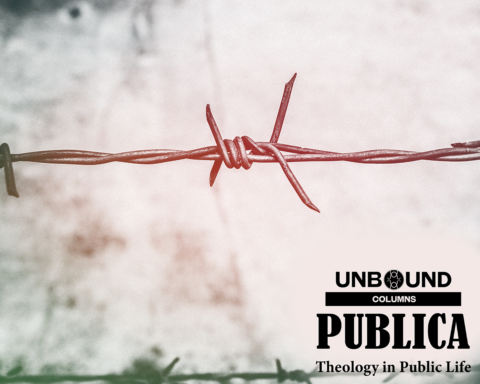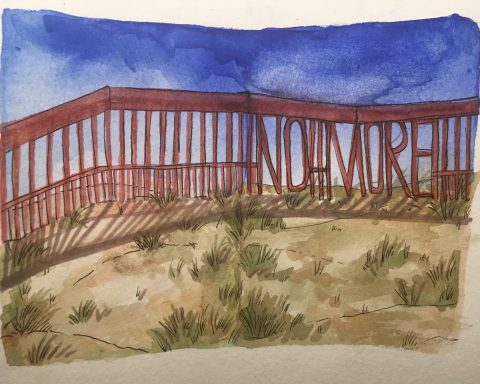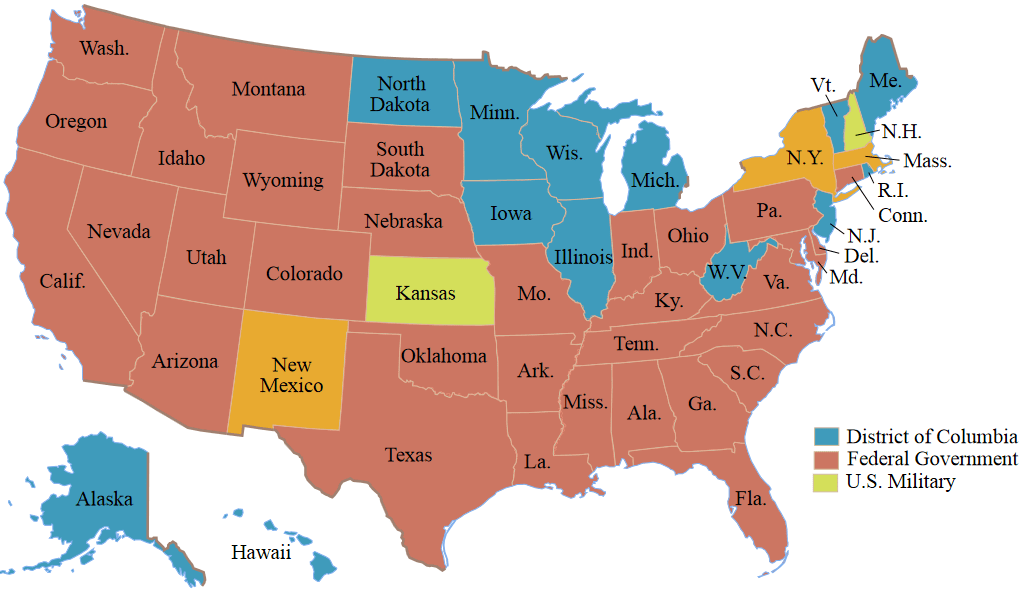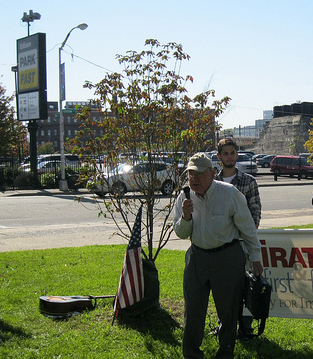
What Christians Can Contribute to the Immigration Debate
Teresa Waggener is co-manager of the Office of Immigration Issues of the Presbyterian Church (U.S.A.)
From creation to revelation, the Bible bears witness to God’s deep and abiding love for humanity. A condition of our humanness reflected throughout the Bible is that of being on the move. This sojourn begins in the first book of the Bible with Adam and Eve’s expulsion from the Garden of Eden. When Adam and Eve crossed that border we, as the people of God, were expelled from our first home with God. Our attempts to find our way back are documented in the Bible and give us guidance about how God expects us to treat one another as we all continue to search for our way back home.
Adam and Eve aren’t the only people on the move in book of Genesis. Joseph’s jealous brothers sell him into slavery. His servitude takes him on an unwilling journey from Canaan into Egypt. Joseph’s life in Egypt started in slavery and culminated when he became chief steward underneath the Pharaoh. He and his family in Canaan reconciled and they then crossed a border to be reunited with Joseph in Egypt where they lived and prospered until Joseph’s death.
Unfortunately, the new Pharaoh did not know Joseph and did not trust the descendants of his family. He forced the Israelites into slavery, abused them and at one point ordered the genocide of all the male children at birth. It was time to be on the move again, this time with Moses as their leader. The words that are repeated throughout this journey in Exodus, Leviticus and Deuteronomy are “You, too, must show love to the foreigners, for you yourselves were once foreigners in the land of Egypt.” [1]
___________________________________________
The Bible teaches us that there are many reasons why people are called to be on the move: shame, slavery, love of family, flight from oppression, and to bring good news. We also see that the persons who are on the move contribute to the lands that they encounter much in the way Joseph helped Egypt through the famine and Jesus healed the sick.
___________________________________________
How true these words ring for us today. If we are European Americans, many of us can look back just three to five generations to see when we were new in the United States. These words ring even more true for us, as Citizens of Heaven[2] who have not been in our homeland since the Garden of Eden. Our ancestry and our status in this world compel us to consider who we are and how we got here and to treat each other as we want to be treated as fellow sojourners.
Our sojourn continues in the New Testament in the life of Christ. God migrated to the human condition to live among us. I am going to repeat this sentence: God migrated to the human condition to live among us. As a newborn, he became a refugee when Joseph was visited by an angel of the Lord and told to flee to Egypt because Herod planned to kill Jesus. His adult life was no different. Jesus crossed the border between heaven and earth to teach and to heal. During his time with us, he traveled throughout the land and had “no place to lay his head.”[3] Jesus called on his disciples to do the same, sending them out and saying, “Anyone who welcomes you welcomes me, and anyone who welcomes me welcomes the one who sent me.”[4] Recalling the life of Christ and the life he called upon the disciples to live, reminds us that our home is not necessarily where we were born, rather it is where we are welcomed and where we feel that we can welcome others.
 The Bible teaches us that there are many reasons why people are called to be on the move: shame, slavery, love of family, flight from oppression, and to bring good news. We also see that the persons who are on the move contribute to the lands that they encounter much in the way Joseph helped Egypt through the famine and Jesus healed the sick. These facts about migration are often left out of our political discourse today. The speech we hear of migration is about people who broke laws to be here and are taking from our country. It is so vitally important that we as Christians call upon the history of our ancestors when we consider our broken immigration system and add our voices to the discourse. We know why people are on the move and we know how newcomers ought to be treated because we, too, are on a journey – a journey back home.
The Bible teaches us that there are many reasons why people are called to be on the move: shame, slavery, love of family, flight from oppression, and to bring good news. We also see that the persons who are on the move contribute to the lands that they encounter much in the way Joseph helped Egypt through the famine and Jesus healed the sick. These facts about migration are often left out of our political discourse today. The speech we hear of migration is about people who broke laws to be here and are taking from our country. It is so vitally important that we as Christians call upon the history of our ancestors when we consider our broken immigration system and add our voices to the discourse. We know why people are on the move and we know how newcomers ought to be treated because we, too, are on a journey – a journey back home.
Notes:
As co-manager of the Office of Immigration Affairs, Teresa Waggener provides advice and counsel to mid-councils and congregations who are calling immigrant pastors and creates education and resource materials about immigration law and General Assembly policy. Teresa has a Juris Doctor from the Brandeis School of Law and a Masters in Spirituality from Bellarmine University.






Unbound Social